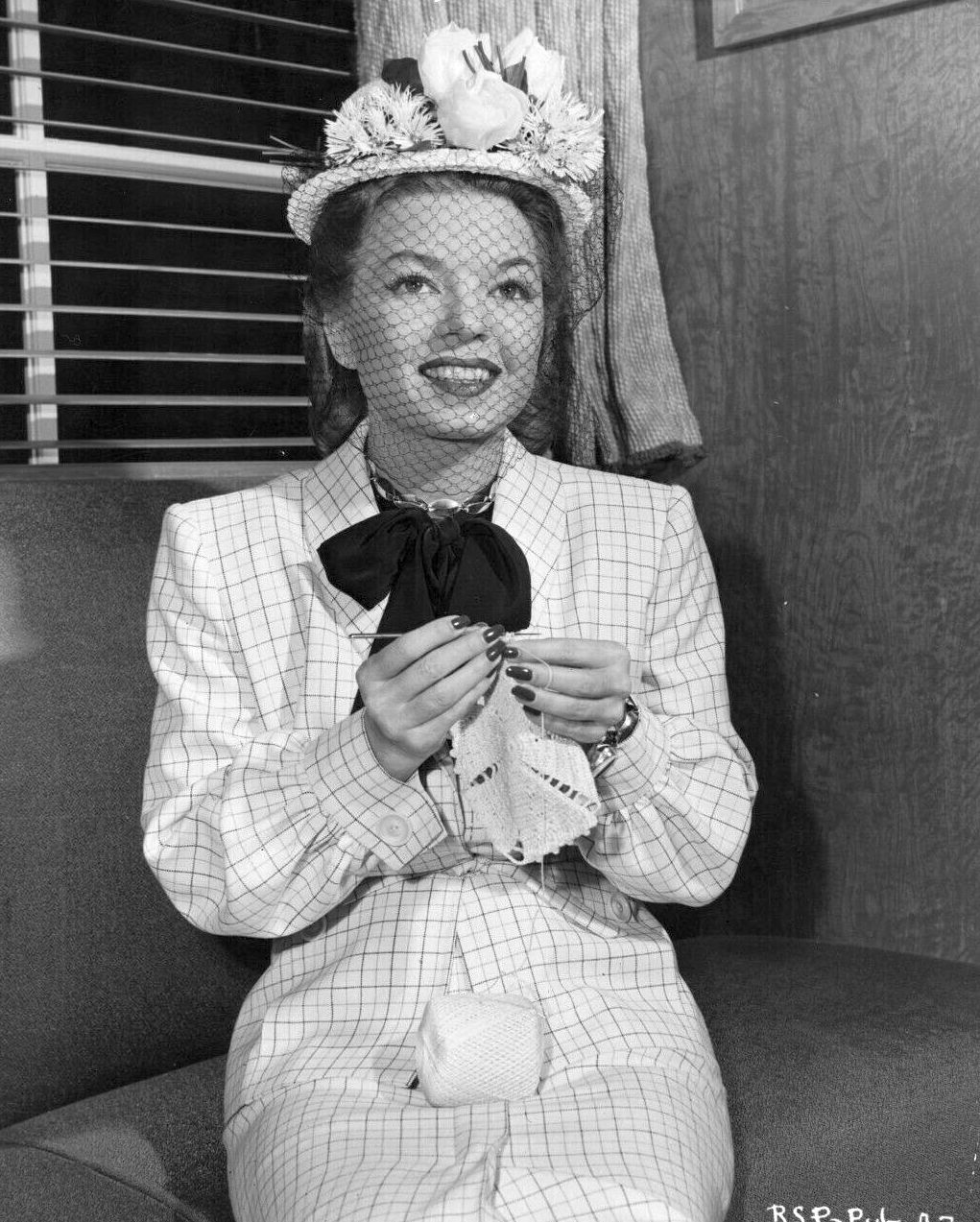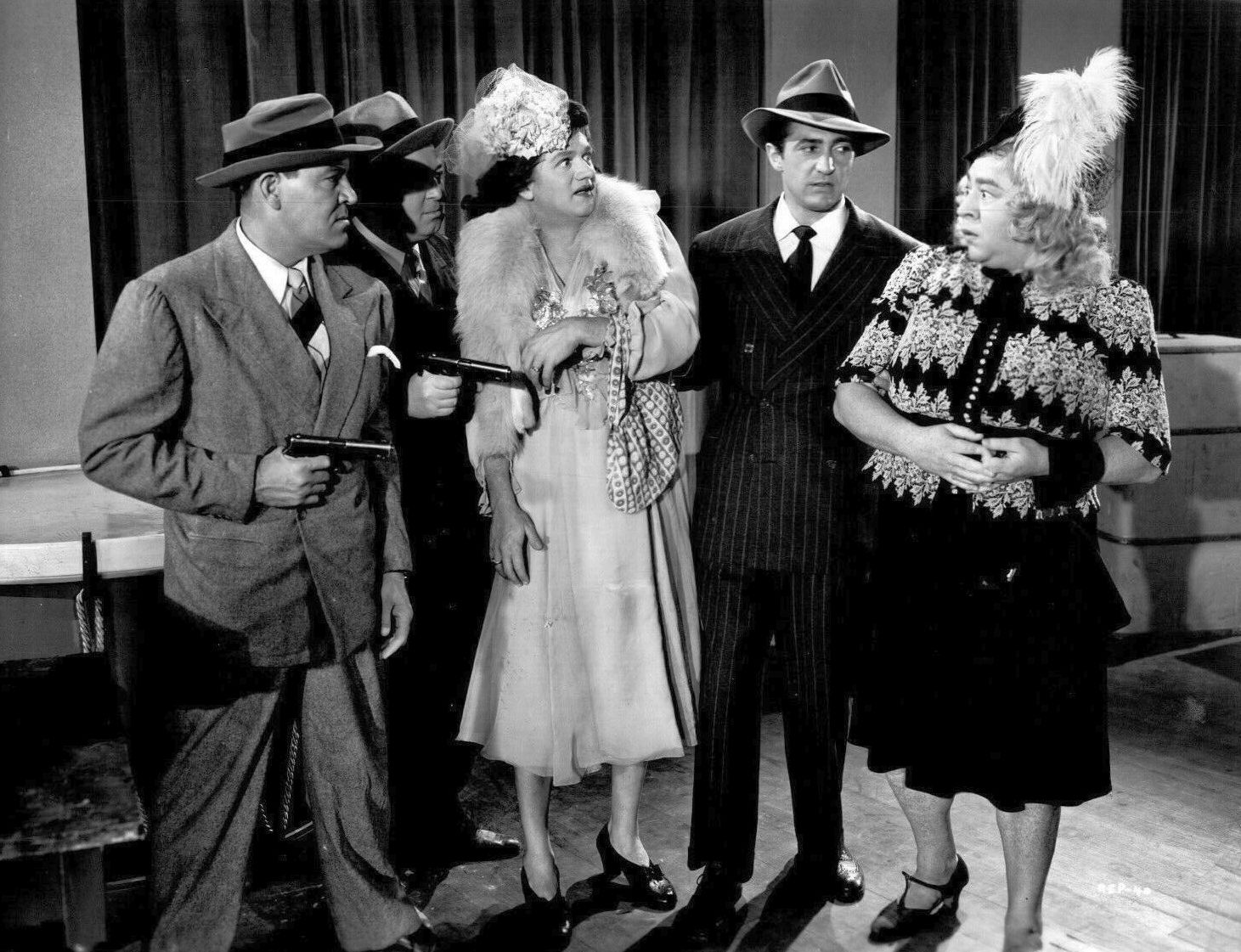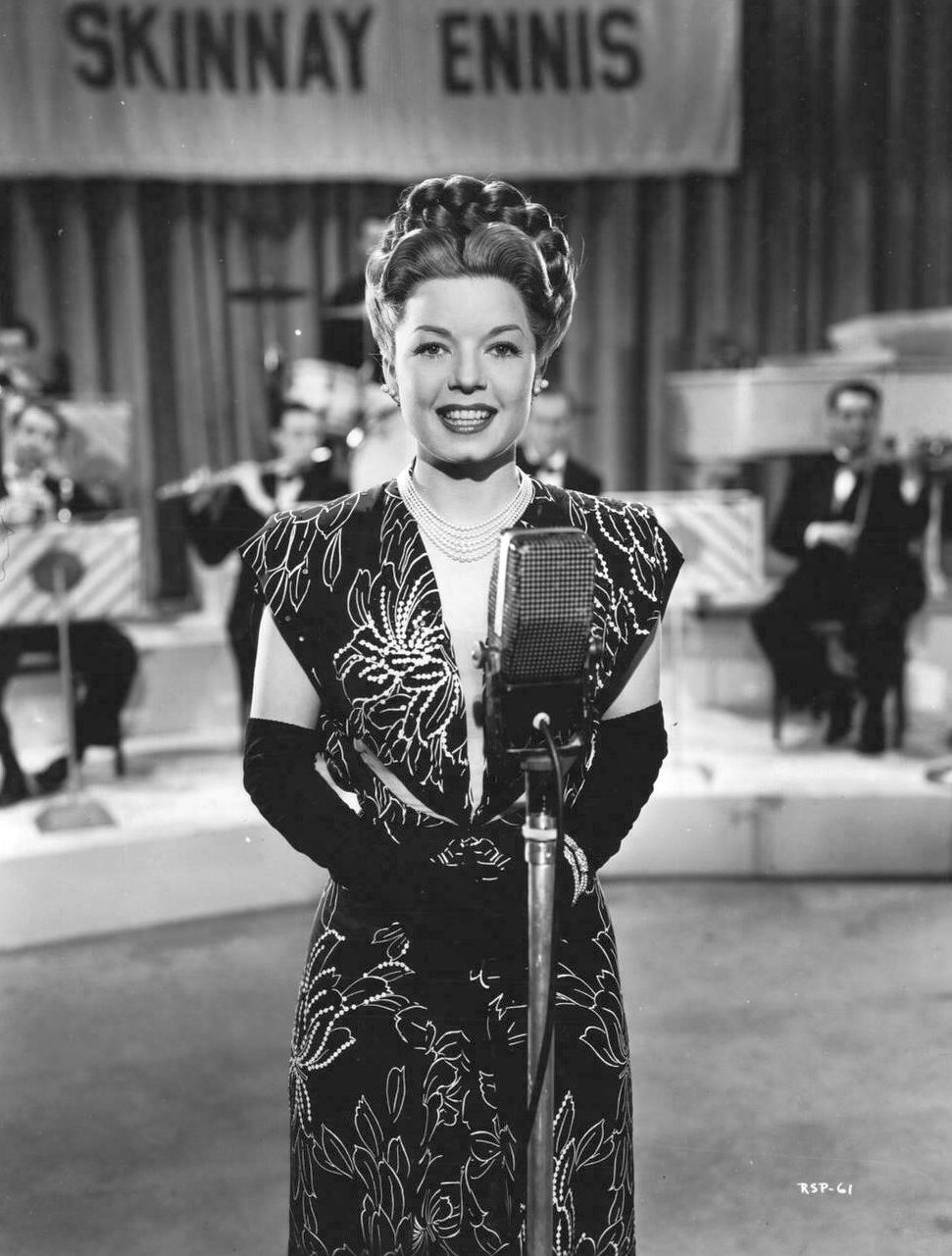Review: Radio Stars on Parade (1945)
Posted by Ivan G. Shreve, Jr. on Apr 10th 2014
Effervescent chanteuse Sally Baker (Frances Langford) is a success at a nightclub owned by racketeer Lucky Maddox (Sheldon Leonard)—but when Maddox’s attentions start to drift towards a more amorous direction, she decides to go west, young man, go west. She’s received communication from an agent named Phil Merwin (Ray Walker) that he’ll be able to get her radio work in Los Angeles, and since her G.I. boyfriend Danny (Robert Clarke) is also bound for the same destination, it appears to be a most fortuitous time for Sally’s career change. Mr. Maddox, on the other hand, is not happy about losing both his meal ticket and object of ardor. So, he sends a couple of his associates (Ralph Peters, Max Wagner) out to L.A. to keep an eye on his investment.
Mr. Merwin, in the meantime, has turned over his agency to a pair of out-of-work comedians, Jerry Miles (Wally Brown) and Mike Strager (Alan Carney)—though the two men are unaware that Merwin’s generosity is due to his having to lam it out of town to avoid a gambling debt. Jerry manages to get Sally an audition with bandleader Skinnay Ennis that results in a job on his radio show despite Maddox’s threats to Mike that Sally should refuse the gig. Both Jerry and Mike find themselves at the mercy of Lucky’s goons and attempt to escape them by hiding out on radio programs such as Truth or Consequences (featuring host Ralph Edwards). Finally, the authorities round up Lucky and his mob and Sally and Danny are reunited in time for the fadeout.
Radio Stars on Parade (1945) is a bit of a misnomer: the “stars” in the film certainly aren’t of the celebrity wattage as some of RKO’s previous radio-to-film employees like Fibber McGee & Molly and The Great Gildersleeve…it focuses more on what might be more accurately termed “second bananas” like Ennis and announcer Don Wilson. The movie was really more of a showcase for the studio’s comedy team of Wally Brown and Alan Carney…who appeared in a few films (though not teamed together) at RKO before The Powers That Be decided to feature them as an ersatz (Bud) Abbott & (Lou) Costello, beginning with the Buck Privates-like Adventures of a Rookie in 1943.

There are two schools of thought regarding Brown and Carney. The one I graduated from believes that despite the talents of the two men (Carney, for example, was most effective as Cary Grant’s sidekick in Mr. Lucky [1943]) they had no real chemistry as a comedy team…and many of their features are often painful to sit through as a result. (I will make an exception in the case of Step Lively [1944], which was a decent musical remake of the Marx Brothers vehicle Room Service [1938].) The other school acknowledges that while the team wasn’t going to measure up to Abbott & Costello, the two men did what they could with the tools that they had. Two of the Brown-Carney vehicles, Zombies on Broadway (1945) and Genius at Work (1946), have cult followings owing to the presence of their co-star, Bela Lugosi.
Wally and Alan play Jerry Miles and Mike Strager in Radio Stars—characters that they consistently portrayed in nearly all of their vehicles as a team with the exception of Lively and Seven Days Ashore (1944). Friends of mine who are fans advocate that the two men are unfairly maligned because they rarely got strong material to work with (in Stars, the anemic script comes courtesy of Monte Brice and Robert E. Kent). In fact, when revisiting Radio Stars the other day I found myself laughing more at Don Wilson than the duo—Don engages in some amusing “hep” badinage with Brown’s Miles: “I grab your gab, Gate…you’re lookin’ for a scat cat who’s a loon for a croon tune…and when I dig, I don’t jig…I’m solid…potato solid!” (Donsy also has a nice joke when doing a commercial for Ennis’ radio show, sponsored by Paruin’s Vitamin Capsules: “Boys…if your girls want to know what makes you so strong…just say…’Honey—that’s because I’m full of Paruin’s!’”)
Radio Stars also features bandleader Skinnay Ennis and vocalist Frances Langford, who appeared together for a time on Bob Hope’s radio program. Ennis maintains his easygoing Southern persona and even gets a song spotlight with his hit “I Couldn’t Sleep a Wink Last Night.” Langford, who shares top billing with Brown and Carney, doesn’t quite fare as well. Although her singing talent is evident with such tunes as “Can’t Get Out of This Mood” she’s little more than a plot device—it’s difficult to believe that the woman who would later prove so adept at comedy by playing Blanche Bickerson wasn’t given an opportunity to do anything but sing and look pretty. This was Frances’ second film with Wally and Alan. I’ve yet to see their 1944 comedy musical Girl Rush…which features the novelty of Robert Mitchum as an outlaw who disguises himself as a mail order bride at one point in the movie.

Speaking of drag—Messrs. Brown and Carney are also forced to don women’s clothing in Radio Stars…which is worked in cleverly as a stunt on Truth or Consequences. Consequences host Ralph Edwards plays himself in both this segment and an earlier sequence that introduces the Jerry and Mike characters (with a little pie-throwing at Mr. Strager). Edwards’ radio show had also been featured in an RKO film three years earlier, Seven Days’ Leave. The Truth or Consequences bits are the comedic highlights of Radio Stars—though I also chuckled during the film’s windup, which features our heroes barging in on a broadcast of Dick Tracy. (The Tracy character would be the focus of four RKO programmers beginning the same year as Radio Stars on Parade’s release.)
Rufe Davis, who fans might recognize as conductor Floyd Smoot from TV’s Petticoat Junction (as well as a frequent B-western sidekick), has his moments as a sound patterns engineer (even singing a little ditty entitled “The Sound Effects Man”). Sheldon Leonard performs what he could probably have done in his sleep by that point in his career: the menacing gangster, though he also conducts a brief masquerade as a courtly Southern attorney. Sharp-eyed viewers will also spot character veterans like Emory Parnell (as a cop—there’s a stretch) and Jack Rice as a persnickety usher whose attempts to oust Leonard’s goons from the Consequences studio are doomed to fail. Radio Stars was directed by comedy veteran Leslie Goodwins, who also helmed many of RKO’s Mexican Spitfire vehicles. A news item in The Hollywood Reporter from that period noted that RKO executives were so pleased with the first cut of the film that they planned to do a few more films featuring radio personalities…but none of these productions came to pass.

Radio Stars on Parade is by no means a great film…but the novelty of its radio background and spotlight on familiar “second bananas” surely make it a curiosity to look out for the next time you spot it on the schedule of Turner Classic Movies. In the meantime, why not check out Frances Langford in The Bickersons: Put Out the Lights! and Burns & Allen: Treasury (as well as the 1946 feature People are Funny, another fun radio-based film). Don Wilson and Sheldon Leonard can be heard in many of Radio Spirits’ Jack Benny collections…but you’ll also enjoy hearing Leonard as “Grogan” in such Phil Harris-Alice Faye compilations as Private Lives and Wonga and in dramatic showcases on Suspense, The Line Up and Richard Diamond, Private Detective.

